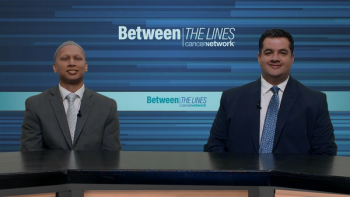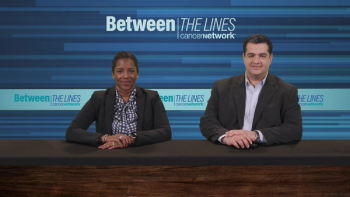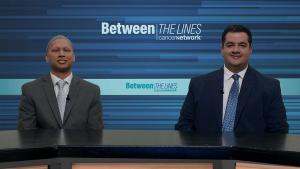Articles by Mazyar Shadman, MD, MPH

Panelists discuss how improving CAR T accessibility through reduced monitoring requirements could strengthen its position against bispecific antibodies in treatment decision-making, emphasizing that access considerations should only influence therapy choice when efficacy and safety are comparable, not when CAR T demonstrates superior outcomes.

Panelists discuss how immune cell–associated neurotoxicity syndrome data mirrors cytokine release syndrome patterns, with 70% of patients experiencing no neurotoxicity, only 5% to 7% developing grade 3 or higher events, and most toxicities occurring early and resolving within 1 week, further supporting arguments for modified monitoring approaches.

Panelists discuss how data from over 1500 patients receiving liso-cel shows consistent cytokine release syndrome (CRS) outcomes between clinical trials and real-world settings, with most CRS events occurring within the first 2 weeks and late-onset events being rare and manageable, supporting potential changes to monitoring protocols.

Panelists discuss how CAR T monitoring requirements have evolved from initially conservative inpatient approaches to more flexible outpatient strategies, exploring ways to reduce the burden of mandatory 30-plus-day proximity requirements while maintaining patient safety and improving treatment accessibility.

Panelists discuss how CAR T cell therapy has transformed lymphoma treatment with multiple FDA-approved products showing 70% to 80% overall response rates and 50% to 60% complete response rates across different B-cell malignancies, while emphasizing the importance of comparing clinical trial data with real-world evidence to understand true efficacy and safety profiles.

Experts discuss future directions and key insights in treating large B-cell lymphoma (LBCL).

Experts discuss safety management and monitoring protocols for liso-cel in treating relapsed/refractory large B-cell lymphoma.

Experts provide a safety summary of the phase 3 TRANSFORM study, highlighting key safety findings for liso-cel in relapsed/refractory large B-cell lymphoma.

Experts discuss clinical features and risk factors in navigating the decision between autologous stem cell transplant (ASCT) and chimeric antigen receptor T-cell (CAR T) therapy for patients with relapsed/refractory large B-cell lymphoma (R/R LBCL).

Experts discuss the impact of manufacturing and treatment timing on patient outcomes for chimeric antigen receptor T-cell (CAR T) therapy in relapsed/refractory large B-cell lymphoma (R/R LBCL).

Experts discuss patient selection and timing considerations for chimeric antigen receptor T-cell (CAR T) therapy in treating relapsed/refractory large B-cell lymphoma.

Experts discuss long-term efficacy and real-world outcomes with liso-cel in treating relapsed/refractory large B-cell lymphoma.

Experts discuss the 3-year follow-up from the phase 3 TRANSFORM study, providing an overview of the study and key efficacy data.

Experts provide a brief overview of the current treatment landscape and unmet needs in relapsed/refractory (R/R) large B-cell lymphoma.




